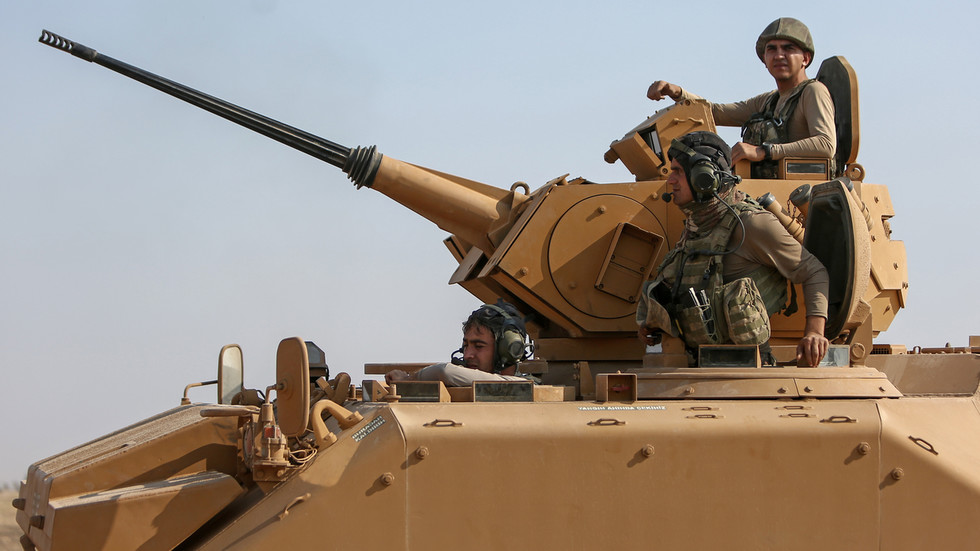Fighters from the Hay'at Tahrir al-Sham terrorist group, backed by Turkish forces, carried out an attack against the Syrian Army that was doomed from the start. The main question now is, why?
News reports out of Syria’s Idlib Province indicated that a joint operation involving the Turkish Army and fighters from the Salafist jihadist militant group Hay'at Tahrir al-Sham (HTS) has been initiated against positions of the Syrian Army in and around the village of Nayrab, which had fallen to Damascus’ forces in the past days.
HTS units, backed by Turkish artillery, were able to overrun several Syrian Army positions, capturing a number of armored vehicles, before being driven back by airstrikes delivered by the Russian Air Force. The Turkish media has reported that at least two Turkish soldiers were killed in the fighting, and several more wounded, though the Turks say they were hit by Syrian, not Russian warplanes.
There has been collaboration between the Turkish military and HTS on the battlefield before, with Turkish artillery firing in support of limited counterattacks conducted by HTS units equipped with Turkish armored vehicles and weaponry. As in the case with the Nayrab battle, these attacks enjoyed brief success, before being beaten back.
What differentiates the previous failed counterattacks from the Nayrab operation is the presence of Turkish troops fighting alongside the HTS fighters, and the recent statements by Turkish President Recep Tayyip Erdogan threatening to launch a major offensive designed to throw the Syrian Army back to positions held at the time of the September 2018 Sochi agreement. At first blush, the Nayrab battle appears to represent the manifestation of Erdogan’s threat, the initial battle of a larger campaign designed to punish the Syrian Army and its Russian allies.
There is one problem in such a scenario – the Russian Air Force. Russia has made it clear that it will not permit Turkey to launch air operations in Idlib. Moreover, the fact that the Russian Air Force was employed immediately to attack and defeat the Turkish/HTS offensive shows that Moscow has not ceded its control of Syrian air space. So long as Russian aircraft are operating in Idlib, no offensive action against the Syrian Army stands a chance of succeeding.
The Turkish military is fully aware of this reality, which begs the question: why launch an attack that was doomed to fail? One of the main unanswered questions for Turkey was how the Russian Air Force would respond to any attack involving Turkish troops and equipment. That question has now been answered. In carrying out the Nayrab attack, Turkey has escalated the situation almost to the level of direct Turkish-Russian combat. In the immediate aftermath of the Russian airstrikes against Turkish/HTS forces, the Turkish government issued a request to the US for Patriot anti-air missiles to help defend Idlib air space from the Russian Air Force. It is highly unlikely that such a request would be granted.
More probable is that, by engaging in such an escalation, Turkey might be gambling on Russia seeking to de-escalate to avoid any long-term damage to Turkish-Russian relations. One objective may be to obtain a new ceasefire agreement which could involve joint Turkish-Russian military patrols, similar to those underway in the Turkish-occupied Kurdish territory in northeastern Syria.
While Russia may yet accede to a ceasefire, it would not do so unless Turkey were to provide guarantees that the HTS fighters in Idlib were disarmed and removed. Void of that, Russia has made it clear it will continue to support the Syrian Army in its efforts to restore control over the totality of Syrian sovereign territory. Unless Turkey is willing to risk full-scale war with Russia over Idlib, it appears Erdogan’s bluff has been called, yet again.
Source: RT.com
By: Scott Ritter



























